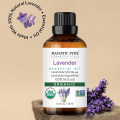Psychologist reveals strategies to prevent and manage anger
Samar Hafeez, a psychologist and holistic health coach, is here to share her expert advice on how to prevent and manage rage.

Anger is a basic and a powerful emotion. It occurs in the wake of a danger or threat and varies in degree from mild irritation to rage. It basically operates on the principle of survival; this makes it the most frequently occurring negative emotion. When it comes to anger it is all about how you express it, and if it goes unchecked, it can wreak havoc in lives. Like all other basic emotions, anger should be monitored and regulated on a regular basis. For those who have occasional outburst to those with chronic anger issues, learning techniques to identify and navigate this emotion can facilitate change and growth. Today, Samar Hafeez, a psychologist and certified holistic health coach, offers her professional insight on techniques for preventing and controlling anger.
Let us now divulge in some of the workable inoculation strategies to prevent and manage anger.

1. Know the difference between reacting and responding: A closer look at these two words indicate how very different they actually are. A reaction is quick and instant and requires no much thought. A person who reacts does not consider the harmful consequences of what he says or does. On the other hand, a response is slow, thoughtful and non- threatening, it considers your well- being and of those around you. Responding makes you feel more in control of yourself and gives very less room for the anger trigger to provoke you further.
2. Visualization: Visualization of anger- inducing situations in your mind will help train your anger response for the final expression. Write down descriptions of anger scenes in detail, the richer the description, the more effectively you perform the exercise, also include angry thoughts in the description for more clarity. You can start with the scene that makes you least angry and work your way up to the most annoying anger scene imaginable.
3. Be assertive rather than aggressive: Assertive responses are calm, straightforward and to the point. Assertions are free from abusive and intimidating statements or words, they are often sufficient to show genuine compassion, and spark interest in topic under discussion. Fairness and mutuality are central to assertiveness. Being conscious of your angry thoughts and misconceptions will help you make assertive statements.

4. Relaxation, prayer and meditation: Detox with deep breathing exercises, guided mindfulness meditations, progressive muscle relaxation and cue- controlled breathing, these are the simplest ways to start. Each time you do any of the above exercise, pay attention to your bodily response, and compare it to the body’s response when angry, this will assist you in understanding the difference between a relaxed and agitated body state. Yoga too has been proved to be a powerful tool to purify mind, body and soul from effects of stress which is a major anger trigger. Prayer helps calm down nerves on a daily basis and is a type of meditation in itself. Begin your day with a humble prayer, for yourself and others. Make it a habit.
5. Physical activity: Physical exercise alleviates anger; it is a coping mechanism that burns up excess energy caused by anger. Exercise release happy hormones in the body and give instant feeling of relaxation. Indulge in your favourite sport or basic aerobic exercise such as brisk walk, running, jogging for 30 minutes 4 times a week to reap its benefits.

6. Sleep: Have you ever noticed how irritable, annoyed and angry you feel the day you had insufficient sleep? This is because poor sleep quality is the reason behind your disarrayed moods. Sleep is associated with healthy emotional regulation and is vital to good quality sleep on a daily basis. Sleep lowers your stress levels and detoxify your brain, thus making you energetic and amiable. Furthermore, avoid nicotine, caffeine and alcohol before bedtime as it disrupts sleep.
7. Join anger management programs: Despite all the above self- help strategies, if you still feel the task is too overwhelming, try seeking professional help before your life goes spiralling out of control. Anger management sessions (individual or group) will provide you with life skills that will help.
ALSO READ: 4 Fitness lessons you need to learn from John Abraham





 JOIN OUR WHATSAPP CHANNEL
JOIN OUR WHATSAPP CHANNEL



































































































